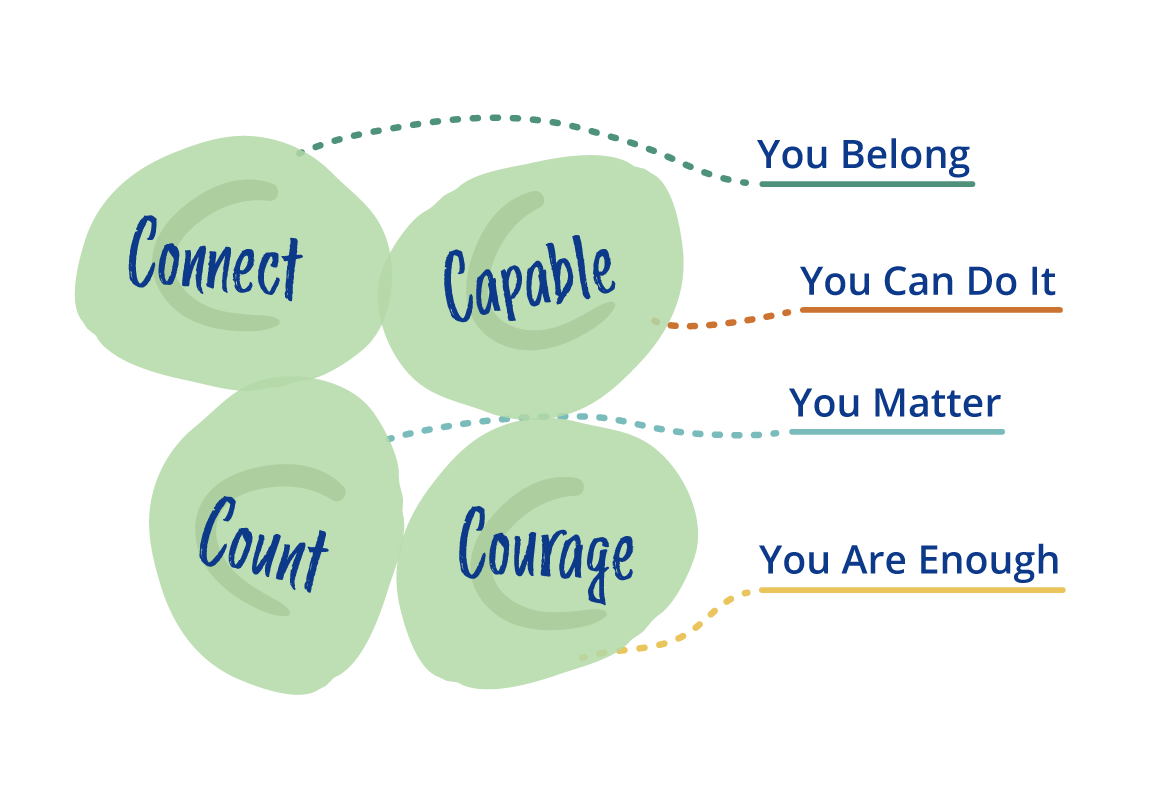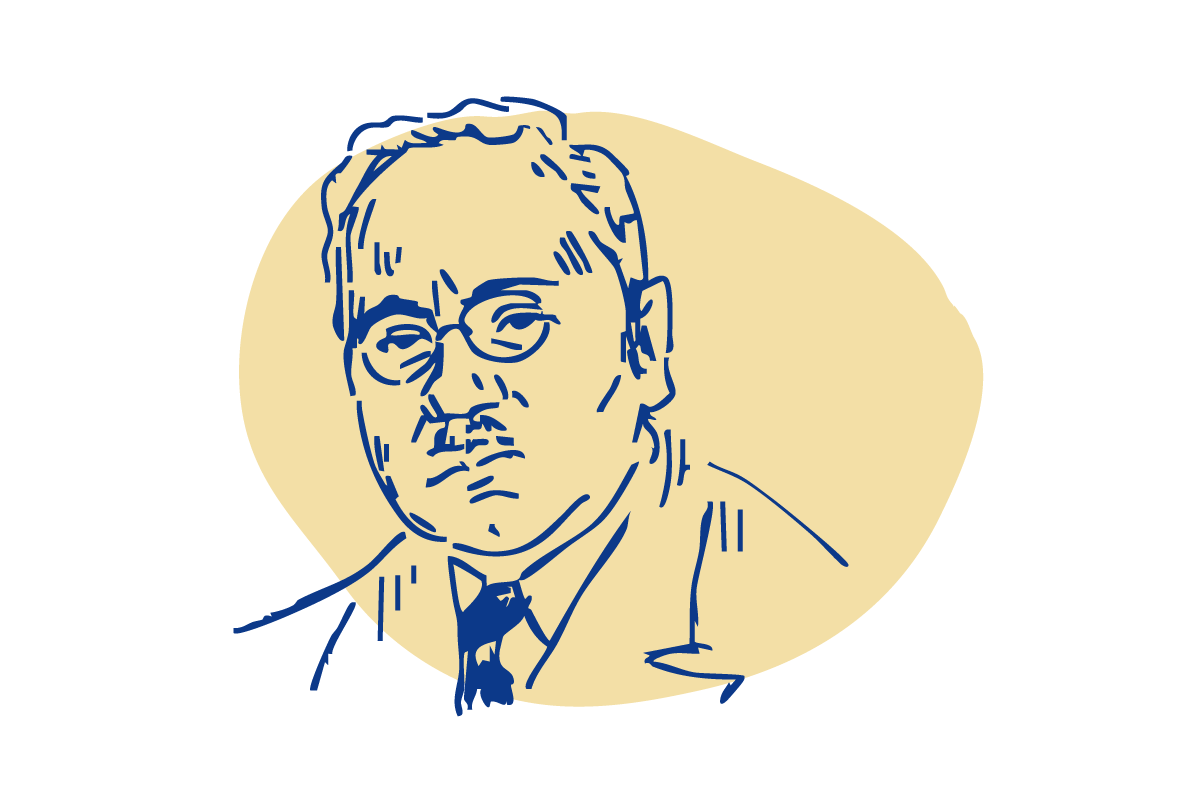Grounded in Theory
The science behind it.
Circle In Toolkits are solidly grounded in Alfred Adler’s theory and practice (also known as Individual Psychology). What about Alfred Adler, a man originally from Vienna, Austria, who taught and practiced around the globe over 100 years ago, is relevant and important to you and me today?
For starters, his theory explains why so many are struggling today. Instead of seeing human beings as consisting of separate, battling forces, Adler identified that a person is whole, incapable of being understood outside of the context of the greater community, and always moving towards a goal that is held so closely, one is often unaware of it.
These goals fall into the four Crucial Cs...

Connect: Humans deeply need to know they belong. This is why, in a society with inflated competitive striving, feelings and perceptions of inferiority are widespread.
Capable: With freedom comes responsibility: raising capable individuals who are able to be accountable and meet the needs of the situation is essential to creating a community where all are free
Count: An essential ingredient of mental health. When we understand our welfare is directly related to the welfare of the whole, we are interdependent and, as a result, each one of us is deeply needed and matters.
Courage: To be encouraging of yourself and others–even when we make mistakes. We are not defined by our mistakes, instead, it is our courage that defines us. It takes courage to get back up from a failure and connect, grow, and contribute.

Alfred Adler coined the German term: gemeinschaftsgefühl which loosely translates into community feeling or social interest. It is the idea that one’s welfare is directly related to the welfare of the whole. He saw that a sense of community feeling is innate but needs to be nurtured and stimulated for a healthy culture to exist. When one doesn’t develop community feeling, anxiety is rife. One’s wellbeing depends upon one’s investment in the welfare of the whole. Adler declared, “All of my efforts are toward increasing social interest.”
Adler’s ideas were vast, deep, practical, and are imminently needed today. As Abraham Maslow remarked, “For me Alfred Adler becomes more correct year by year.”
The theory of Alfred Adler, Individual Psychology, is one of the most borrowed from, least credited. As Henri Ellenberger pointed out in his history of dynamic psychiatry, The Discovery of the Unconscious: “It would not be easy to find another author from whom so much has been borrowed from all sides without acknowledgment as Alfred Adler. His teaching has become, to use a French idiom, an ‘open quarry’... that is, a place where any one may come and draw anything without compunction.”
Adler’s colleagues and students built on his ideas and found broad applicability: Rudolf Dreikurs codified his theory and identified the “Mistaken Goals of Behavior” which show up when a person is missing one of the essential, core needs.
Amy Lew and Betty Lou Bettner translated Adler’s core needs into the Crucial Cs: Connect, Capable, Count, Courage. These four Crucial Cs are universal. When a person has a solid sense of belonging (Connect), positive power and the ability to grow (Capable), and the experience of being significant and needed (Count), they have Courage and are encouraging of others. These Crucial Cs define what human beings need to thrive in a community.
Alfred Adler’s ideas continue to be distilled and shared in fresh ways and are incorporated practically today in many useful theories and practices including Systems Theory, Cognitive Behavioral Therapy, Positive Psychology, Responsive Classroom, and Positive Discipline, to name a few.
Building with the blocks of Adlerian theory, we are grateful for the many authors, speakers and teachers who have lead and inspired the way including: Heinz and Rowena Ansbacher, Lydia Sicher, Rudolf Dreikurs, Achi Yotam, Amy Lew, Betty Lou Bettner, Karen John, Barbara Fairfield, Jody McVittie, Lynn Lott, Linda Jessup, Patti Cancellier, Terry Kottman, Alyson Schafer, Jane Nelsen, Jennifer Wallace, and many others. Thank you.
